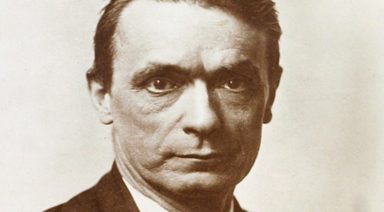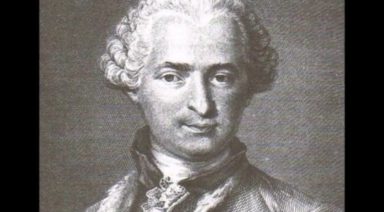How Practicing Gratitude Increases Our Abundance

Both gratitude and abundance are states of mind. They are not dependent on the actual outer provisions or circumstances we have at any given moment. It is our belief in abundance or the lack thereof that creates our experience of it. And our ability to be grateful for what is present that brings more goodness to us. The Yoga Sutra that addresses this says:
“Acknowledging abundance (aparigraha) we recognize the blessings in everything and gain insights into the purpose for our worldly existence.”
Sutra 2.39 translation by Nischala Joy Devi, The Secret Power of Yoga
Acknowledging Abundance
The first key word to note from this sutra is “acknowledging.” Abundance exists all around us all the time. The Universe is an ever renewing, incredibly infinite source of potential. Yet we often keep our vision so trained on the tiniest little speck of reality, that we block the flow of this infinite potential into our minds, hearts, and lives. We focus on what we don’t have instead of giving gratitude for all that we do have. And we suffer because of our limiting beliefs and limited perceptions. When we remember that the truest source of all resources is inexhaustible, and we place ourselves into the stream of infinite potential, we open into all the goodness, joy, beauty, love, opportunities, support, guidance, and creativity that life has to offer. Spirit is our constant storehouse of abundance.
Recognize the Blessings in Everything
The other essential teaching in this sutra is to “recognize the blessings in everything.” That means that even when we hurt or struggle, even when we are frustrated or feel tremendous lack, that we see the inherent opportunity to “acknowledge abundance.” We may not love the process of personal growth that comes through suffering, yet we can be grateful for its value in the long run. If we could really accept that every situation, every experience, every encounter holds a blessing for us, what a difference we would feel when faced with challenge. Instead of being afraid or pushing it away, we could embrace it as a gift of abundance from the Universe.
This is a paradigm shift much like the old question, “Is the glass half empty or half full?” By choosing to acknowledge abundance and blessings even when things aren’t exactly as we would like them to be, an amazing thing happens. We open ourselves to the flow of infinite Universal energy. If we hold on or hold back, we impede this flow. ‘Holding’ often comes in the form of believing that we don’t or won’t have “enough.” And this leads to mental restriction, lack of generosity, and availability to life. The energy of abundance requires the ebb and the flow, the receiving and the giving.
Perceiving Our Purpose
The last aspect to consider in this sutra has to do with perceiving our “purpose.” It promises that as we develop an abundance consciousness, we begin to see more clearly the meaning and purpose of our lives. The beautiful thing about abundance is that when we start looking for it, it appears everywhere. Although outwardly we may feel we have little to spare or share, by seeing the ‘glass half full’ we bypass the perceived lack, and find the ways in which we do have abundance. To share the love in our hearts, to offer time for service or a listening ear to someone who needs support gives purpose to anyone’s life. As we magnify the love in our hearts through the glass of abundance, giving freely, we receive even more in return.
So don’t wait for Thanksgiving to express gratitude or to experience abundance. Take some silent moments to open up to and feel the infinite blessings that surround you. Immerse yourself in the flow of Divine abundance now.
The Hero's Journey: Joseph Campbell Now More Relevant Than Ever

Making sense of our consciousness can be difficult, and in our materialist, western world we try endlessly to objectify that experience. But over the course of the past century, there have been a number of intermediaries reminding us to reconnect with elements of the spiritual journey.
Names like Alan Watts, Thich Nhat Hanh, and Deepak Chopra have sparked a renaissance of interest in the nature of consciousness, meditation, and mindfulness. They remind us of stories and lessons learned over the course of our history, and within these, we find recurring themes of transcendent truth.
But there is one liaison between the old world and the new, who bridged these philosophies and connected the ancient esotericism of the east to the pragmatism of the scientific west, through archetypes and allegory.
Joseph Campbell defined this thirst for truth over a lifetime by examining artists, psychologists, writers, and philosophers. He referred to the lessons in their mythos as the Masks of God, and the protagonists within those stories as the Hero with a Thousand Faces.
Campbell consumed as much of their wisdom as possible, voraciously reading nine hours a day for years at a time. He absorbed the work of great western minds like Carl Jung, Pablo Picasso, James Joyce, and Sinclair Lewis. Through these lessons, he connected the dots of contemporary consciousness with the timeless teachings of the Bhagavad Gita, the Bible, Greek mythology, and the Tibetan Book of the Dead.
In those years of study, he found lessons that applied to man and society at large – overarching narratives that struck a universal chord, particularly the sense that at some point in our lives, we find there is a call unanswered, a void in the spirit that must be fulfilled.
“Follow your bliss and the universe will open doors for you where there were only walls. The cave you fear to enter holds the treasure you seek.”
– Joseph Campbell
The Hero’s Journey
Campbell said you can never be at peace with yourself if you do not answer that call. The call to adventure that forces the hero to remove himself from the ordinary world and face whatever it is that threatens his safety, comfort, and way of life.
At first, the call is refused when fears and second thoughts arise, or the comforts of the home seem too difficult to abandon. But eventually, the hero finds a mentor who pushes them and provides the tools needed to confront their tribulation.
When one considers the “Hero’s Journey,” Luke Skywalker, Arjuna, or even Hamlet could fit the role, but these stereotypes are meant to convey a general truth about finding the fulfillment we all seek. The personal ordeals that confront us can be difficult to face, causing us to relinquish a part of ourselves and take solace in a place that feels safe, while we remain oblivious to what could be learned by challenging those fears.
For some, it may be a vice; an addiction that keeps us trapped in some behavior or lifestyle. Campbell looked to the Tibetan Book of the Dead to confront this type of ordeal, learning that the scripture taught one to strive for the opposing virtue of whatever your vice may be; to overcome what he called the “inmost cave.” By cultivating the antithesis of your vice, you will find the self-actualization that defines your being.
This sentiment has been echoed many times over the ages, and Campbell summed it up when he said, “Gods suppressed become devils, and often it is these devils whom we first encounter when we turn inward.”





































